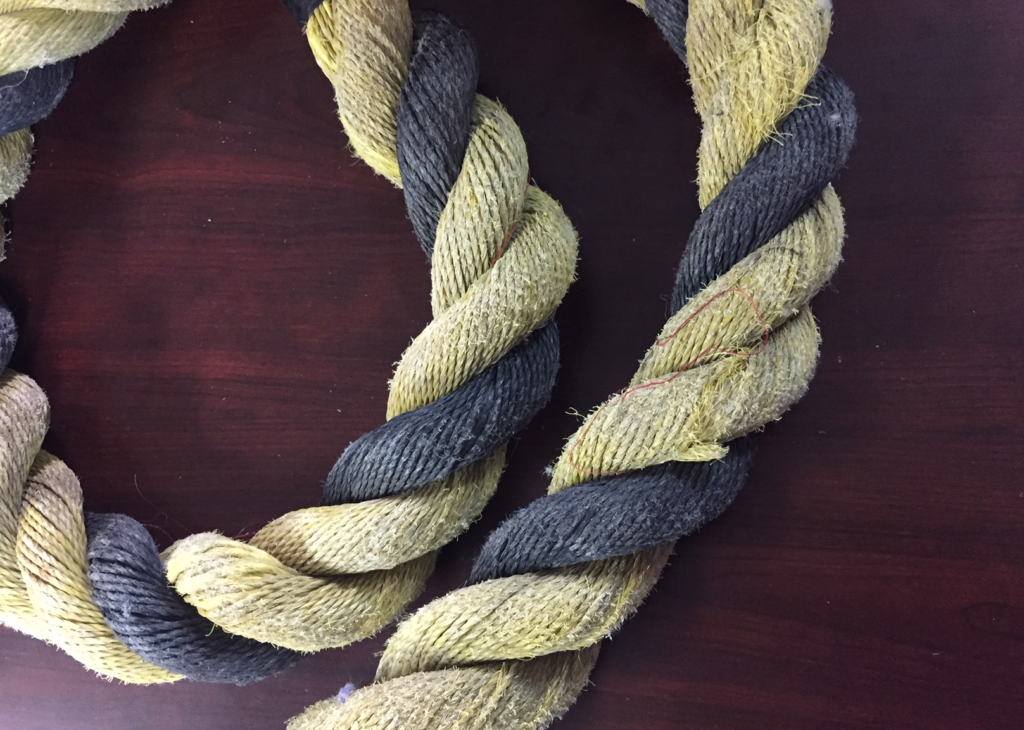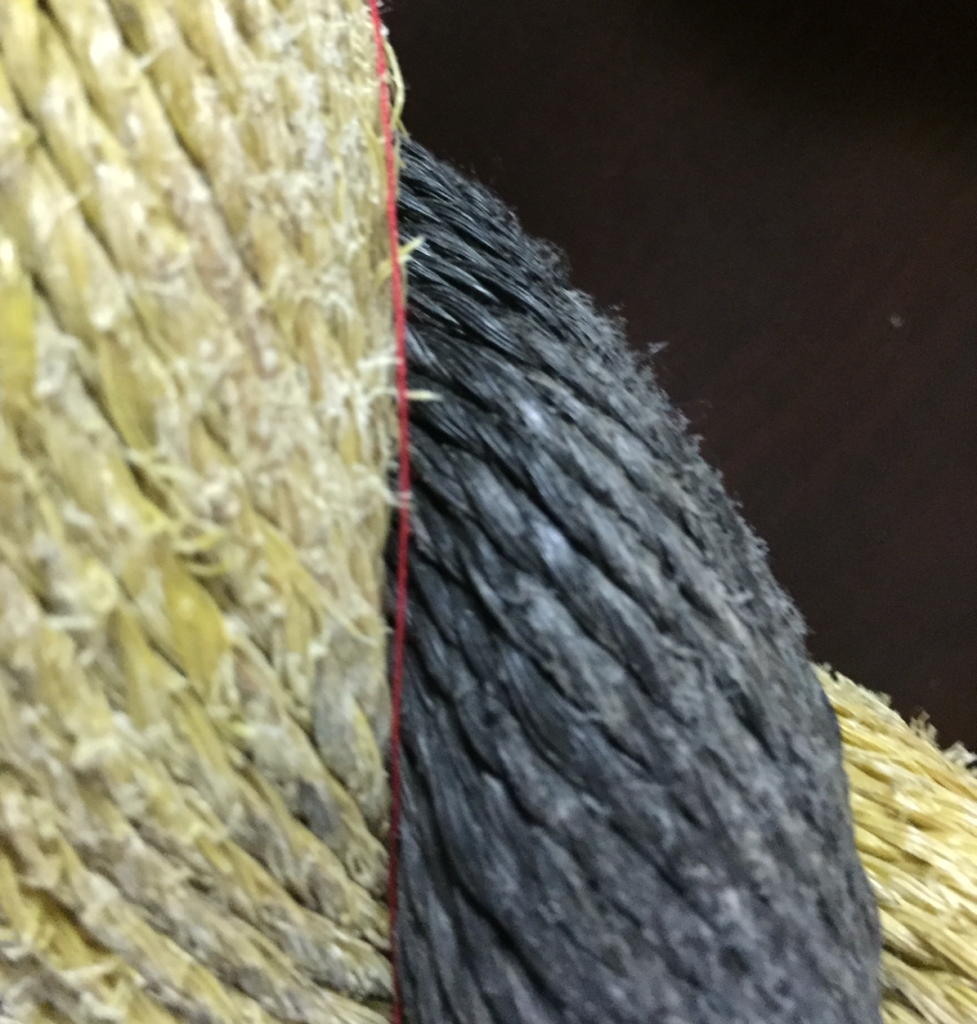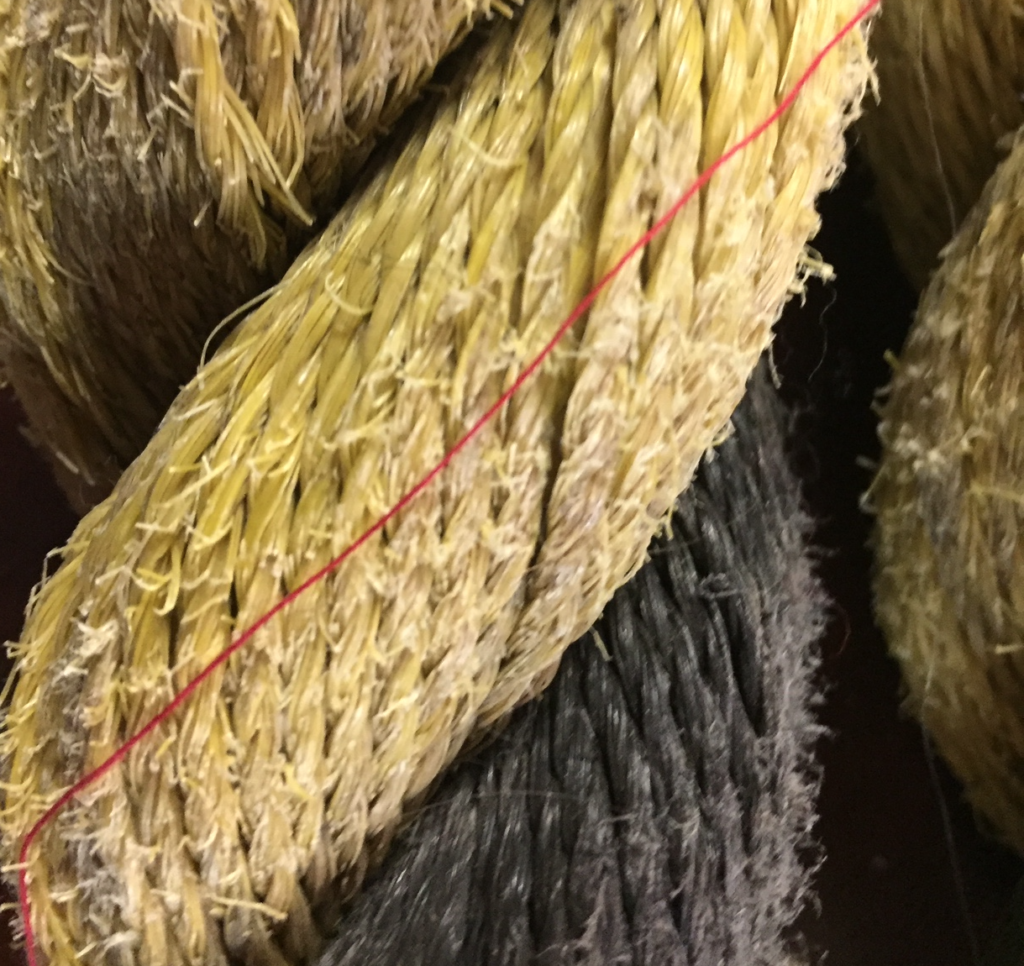
Wait on the Lord; Be of good courage, and He shall strengthen your heart, Wait I say on the Lord. Ps 27:14
Waiting brings to mind waiting on the teenage daughter who is always late. Or thinking of your to-do list while sitting in a doctor’s office watching the hands on the clock slowly turn. Nobody likes to wait.
Those pictures miss the mark. That is not what God was talking about when He told us to wait on Him.
The Hebrew for Wait is active. It’s “to bind together (preh[aps] by twisting), i.e. collect; (fig) to expect:–gather (together), look, patiently, tarry, walk (for, on, upon)” (Strongs #6960).
Wait is better illustrated by the cable pictured above. It was used to anchor a ferry on the Mississippi River that carries up to 35 cars with passengers across the big river at St. Francisville, Louisiana. The rope is strong to secure the ferry against the river bank in the rushing water.
Like the Hebrew for wait, this rope is made of three cords twisted together. We’re told in Ecclesiastes that “a threefold cord is not quickly broken.” It’s obvious that three strands together are at least three times as strong as an individual cord would be. Twisted together renders them stronger than they would be as three loosely held cords because the twisting makes them pull together as one.
As I consider what it means to wait on the Lord,, the cable illustrates the triune Father, Son, and Holy Spirit. The concept of a three-in-one God is too big for me to understand. However, the rope does illustrate three twisted together and joined as one. The three work as one, and are stronger and more complete because they are twisted together as one.
When we’re told to wait on the Lord, the picture is one of us twisted together with Him.

Look more closely at the cord. Can you see the red thread? It’s nestled down in the groove of the cords. Twisting together with the cable as if it’s part of it. In fact, it’s hardly visible. You have to look for it to see it. That’s us–when we’re nestled safely within the cable.
Our strength and ability is nothing. It’s insignificant when storms and floods come. Alone, we’re helpless against the daily rushing of the river, much less when floods bring added turbulence and debris.
However, if we twist together with the Lord, we will be secure. His strength is sufficient to hold us. In fearful and uncertain times, we can rest patiently, with expectancy, as we watch and wait to see what God will do. His love and faithfulness do not fail.
The Lord will never leave us. Instead of fear, we are filled with courage. As we wait, He strengthens our heart and gives us courage–with peace that passes understanding.
Twisting with Him allows His strength to be made known in our weakness as He works all things together for good. If He loves us, we are His, and we are entwined with Him, how could it be otherwise?
On the other hand, what if w can’t quite rest when things are uncertain and the situation looks really bad. What if we try to help God out a bit? We know we can’t do it on our own, so we never let go. First we check things out, then just do a little something to try to help out.
Even after giving it all to God, sometimes it’s hard to wait.

But, helping out when we’re suppose to wait moves us out of the safe place. We’re no longer twisted together with the Lord. Instead, we’re exposed.
We’re in harm’s way, open to being swept away by the rushing current or brushed, bumped, and bruised by debris in the turbulent water. Before we know it, courage and peace fail as we’re buffeted by the storm.
We need to be twisted together with the Lord. We enjoy His protection and His strength when we wait on Him.
It’s never too late to snuggle in and wait on the Lord, twisting together with Him. When waiting on Him, we will have courage because He will strengthen our hearts and give us peace.
Wait on the Lord; Be of good courage, and He shall strengthen your heart, Wait I say on the Lord. Ps 27:14